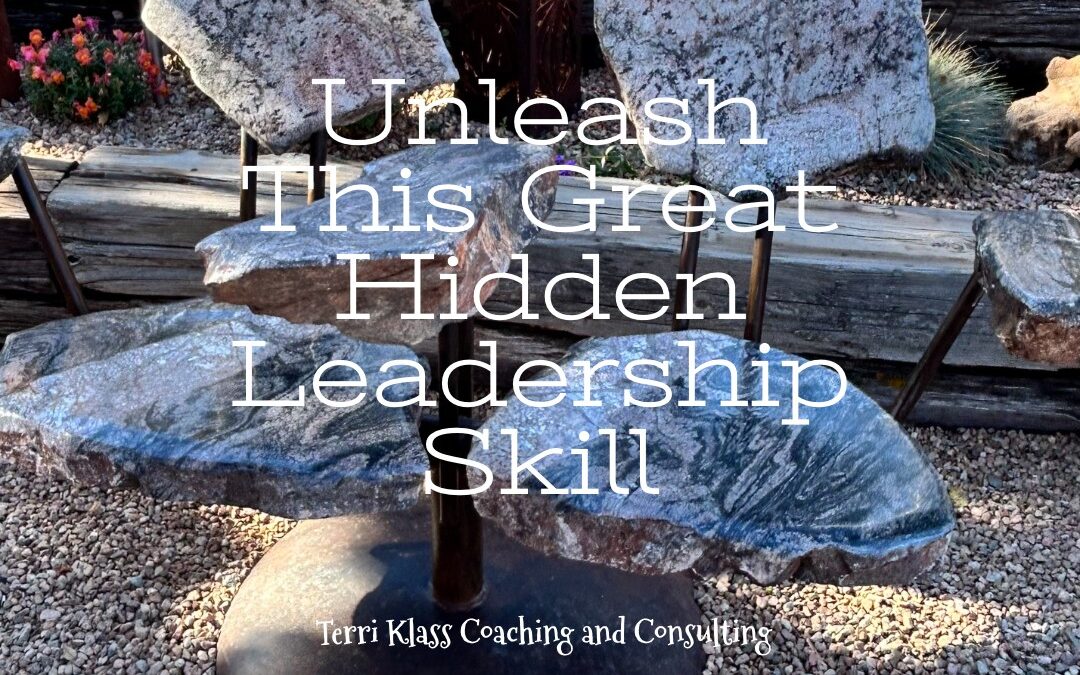Recently I launched a leadership development program for a non-profit I have worked with for many years. Everybody arrived looking excited to be invited to the session and looking forward to what it was all about. You could feel the electricity and hear the buzz. So much hope for what was about to come. Each participant was given an opportunity to sit where they wanted, and I watched as each person made their way to their perfect space. It was fascinating to see how each new leader chose the spot that called to them. Several of the participants simply scurried to the seat that they connected with while others meandered a bit as they spent some time chatting up people along the way.
I began to notice the leaders that were having conversations with each other. They seemed comfortable with themselves and open to hearing what others had to share. They appeared both confident as well as interested in what their classmate had to say. There was an energy and positivity that the conversationalists possessed that elevated the noise level in the room. When they reached out they formed connections with ease. What I was experiencing was a group of leaders who had a gift that surrounded their being. It was the ability to engage others.
Five Actions To Unleash the Hidden Leadership Skill of Engagement:
1. Develop A Curious Mindset
Engagement can only happen if leaders are genuinely curious what other people have to share. When we lead from a place of wanting to know how the people we meet are feeling, we are able to create a connection. Here are some ways to build your curiosity muscles:
- Think of a time someone engaged you in a conversation that felt so impactful. How did that make you feel?
- Identify the things that you are curious about and how you explore to learn more.
- When we were children everything seemed new and interesting. Become a child again and let go of knowing the answers.
2. Believe You Have Something To Share
To engage with others, leaders first have to believe that they have valuable conversation points to exchange. Each of us has important ideas to offer colleagues and new friends. However, if we have the self-limiting belief that we have nothing to add to a conversation we won’t even begin the chit-chat. This is not self-promotion or boasting, but rather honoring your worth.
3. Have A Set of Empowering Questions In Your Toolbox
So here’s a little trick that has helped me and many other leaders foster confidence in engaging others. Create your own set of empowering questions that are authentically you and will help open a conversation. Use language that you are comfortable speaking. And don’t be a know-it-all! Meet people where they are and not above or below them. For example some questions may be:
- What excites you most about being here?
- How are you feeling about our new work situation?
- I love your perspective on that. Could you tell me more about that?
- How else are you spending your time outside of this?
4. Stay Present With Thoughts and Body Language
This action is probably the one that trips leaders up when they are having difficulty engaging others. We need to be in a conversation completely for people to feel that they are being heard. You can sense when someone is only half-listening to you. When that happens we often just check out. Try to tune out the noise around you and focus your body and attention completely on the other person. Respond appropriately to what they are saying and don’t look away as they are speaking. Be in the moment with them.
5. Have Fun
Finally, the skill of engagement is all about having fun and enjoying a conversation. Go into the chit-chat with the assumption you will learn more about what someone’s thinking or feeling and that ultimately builds connection and trust. Bring your smile and sense of humor and let your inquisitiveness flow. You will be happy you did.
How else do you bring the hidden skill of engagement to your leadership interactions?


Great article – Thank you for sharing!
I am happy my article resonated with you Melanie. Please let me know if you are curious to learn more about leadership coaching.
Thank you! Terri